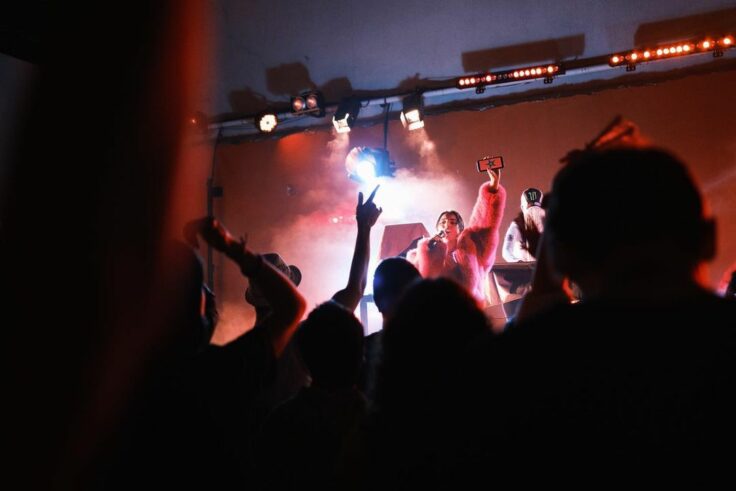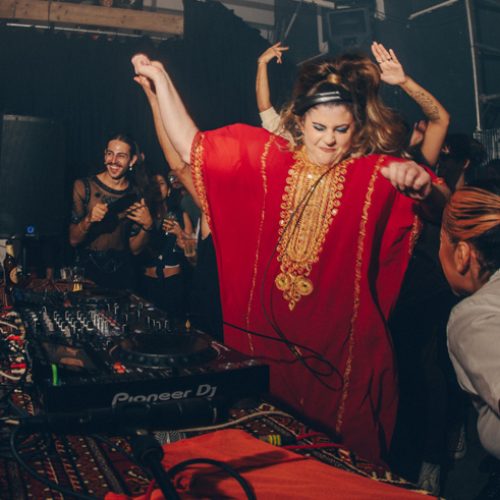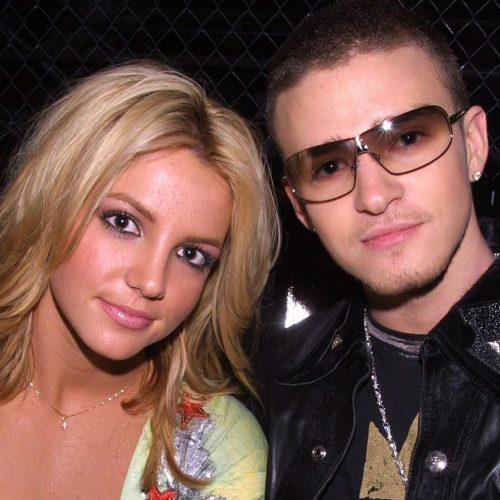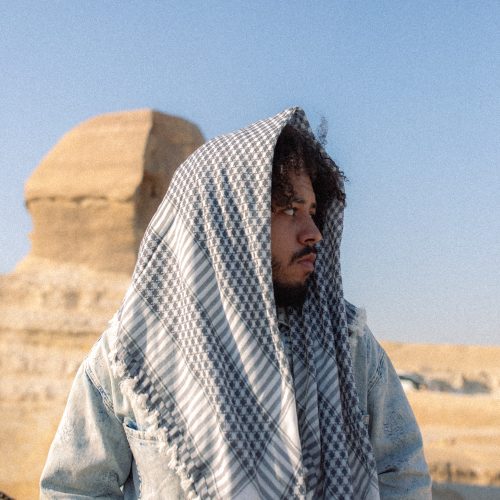When thinking of the Arab World’s rap scene, Lebanon isn’t usually the first place that comes to mind as Beirut is traditionally recognized and hailed for its vibrant electro scene. Seemingly without any regional equivalent in the once-niche-turned-mainstream pocket of music, the unofficial party central of the Middle East has often seen its thumping techno basses mute most attempts from other genres from breaking into club playlists, speakers at parties, and soundtracks of the city’s bustling nightlife.
But that doesn’t mean the Lebanese capital doesn’t have a burgeoning rap and hip-hop scene. In fact, the Levantine city is slowly but surely singling itself out as a rising scene in the region, with inclusivity and gender parity serving as fuel to establish a thriving and diverse sonic ecosystem. Of those eagerly pushing the dial forward stand Beirut & Beyond, whose two-day-long fuss-free event sent a strong message across the Cedar State and entire Arab world, unapologetically foreshadowing the future of one of the world’s most listened-to genres as female.
On a roll for the past decade, since 2013 to be precise, the mini music festival’s organizers have placed the onus on scouting and spotlighting the region’s best sonic talents through recurring events, where hard work and dedication are the most important criteria in the curation and selection process. This year though, the organizer’s focus was redirected towards a marginalized pool of women artists, who unfortunately suffer from a lack of exposure and recognition despite boasting behind-the-mic abilities that are not only worthy of being uplifted and amplified, but also capable of sparking real and much-needed change in such a male-dominated industry.
“We are trying to fill the gaps in a solid and sustainable way, and as rap is on a rapid rise, especially in the past two years, it really is time to start inspiring, influencing, and impacting other young women artists who would want to be at the front of the scene and show them that it is indeed possible,” Amani Seeman, co-founder, and director of Beirut & Beyond, told MILLE.
The idea is quite simple and straightforward: foster the building of a safe space for female artists to learn how to own a space they have been shunned away from. Materializing in the form of a week-long residency, rhythmed with workshops and collective classes on industry secrets, spearheaded by DJ/producer Noise Diva, the two-day event, which took place on May 26 and 27, kicked off with a live performance, open to the general public, for the slate of invited artists to share their lyrical abilities to an audience that is somehow still too unfamiliar with their untapped talent.
“It’s always important to have safe spaces, and that is what we are trying to achieve. Beirut & Beyond’s initial mission was to promote independent artists from throughout the region, and as we got more involved in the scene, we had to acknowledge the responsibilities that come with spotlighting the region’s growing talents, one of which obviously is the lack of women present in the industry,” Seeman continued.
With the idea of developing a global spiderweb of artists that can learn from and rely on one another across borders, the common struggles of being a woman creative in the cultural space were used to create a network where each and everyone can find solace, support, strength, and solidarity from like-minded females from all over the Arab World. As the motto “for us, by us” resounded through the festival, the lineup of lyricists, which included Minerva from Morocco, Egypt’s Laila Beshara, and Nadine El Roubi from Sudan, amongst others, did not only take on the opportunity to perform outside of their homelands for the first time, but also thoroughly studied, in unison, the myriad of ways they can, and assuredly will, seize the instruments of representation and hype.
“We aimed at having the most diverse slate of artists as possible join us, focusing almost exclusively on Lebanon, the Middle East, and North Africa. We selected profiles based on the variety of genres and sub-genres we could see in applications, thinking of what each artist could bring to the table, and the stage they are currently in their careers,” the Beirut & Beyond founder revealed, before admitting being pleasantly stunned by the rich variety of profiles that went on to submit their candidacy for the week-long residency.
“When we did this open call, we were expecting less-emerging artists to apply, but we were surprised to see applications from relatively confirmed artists, who already have a substantial amount of momentum surrounding their respective careers. From there, we decided to shift the content of the residency and shape it more into a safe space for women in the industry to connect, learn from one another, and share their experience about it all,” she continued.
Echoing on her statement 23-year-old Moroccan MC Frizzy added, “If the rap and music industries weren’t so male-dominated, we wouldn’t need these kinds of events. But as the gap still prevails, these initiatives are still very much needed and quite frankly, even vital. In an ideal world, we wouldn’t need these women-only ventures, but we just don’t receive the recognition that we deserve for all the blood, sweat, and tears we put into our respective careers and craft.”
The Versace singer continued, “We all had experiences to share and insights to learn from one another. In other contexts, artists would have to sign expensive cheques just to get the insight we got for free and most importantly in a non-patronizing way.”
That feeling of safety, coupled with togetherness, was tangibly felt across both nights of concerts. Organized in partnership with the Swedish Embassy, the Swedish Institute, as well as the National Museums of Culture in Sweden, the event brilliantly succeeded in its mission, birthing a space where all were welcome and all felt secure enough to let go and for once, not worry about the usual issues that flare up in these sorts of settings, namely harassment, and abuse.
Six flags flew above KED Beirut— an events venue where the concerts took place— for over 48 hours, namely those of Morocco, Tunisia, Egypt, Sudan, Iraq, and of course Lebanon, representing the rich mosaic of sounds and style there were to discover. With concert-goers surprised by each performance, with more than one phone seen stuck on Shazam for the entire duration of the two nights, the first iteration of “Beirut & Beyond: Women Edition” was an unforgettable testament of how direly important these initiatives are, and how eager audiences are in taking part in them, only hoping to see more of them occur in the Mediterranean country and all across the region— and beyond.









